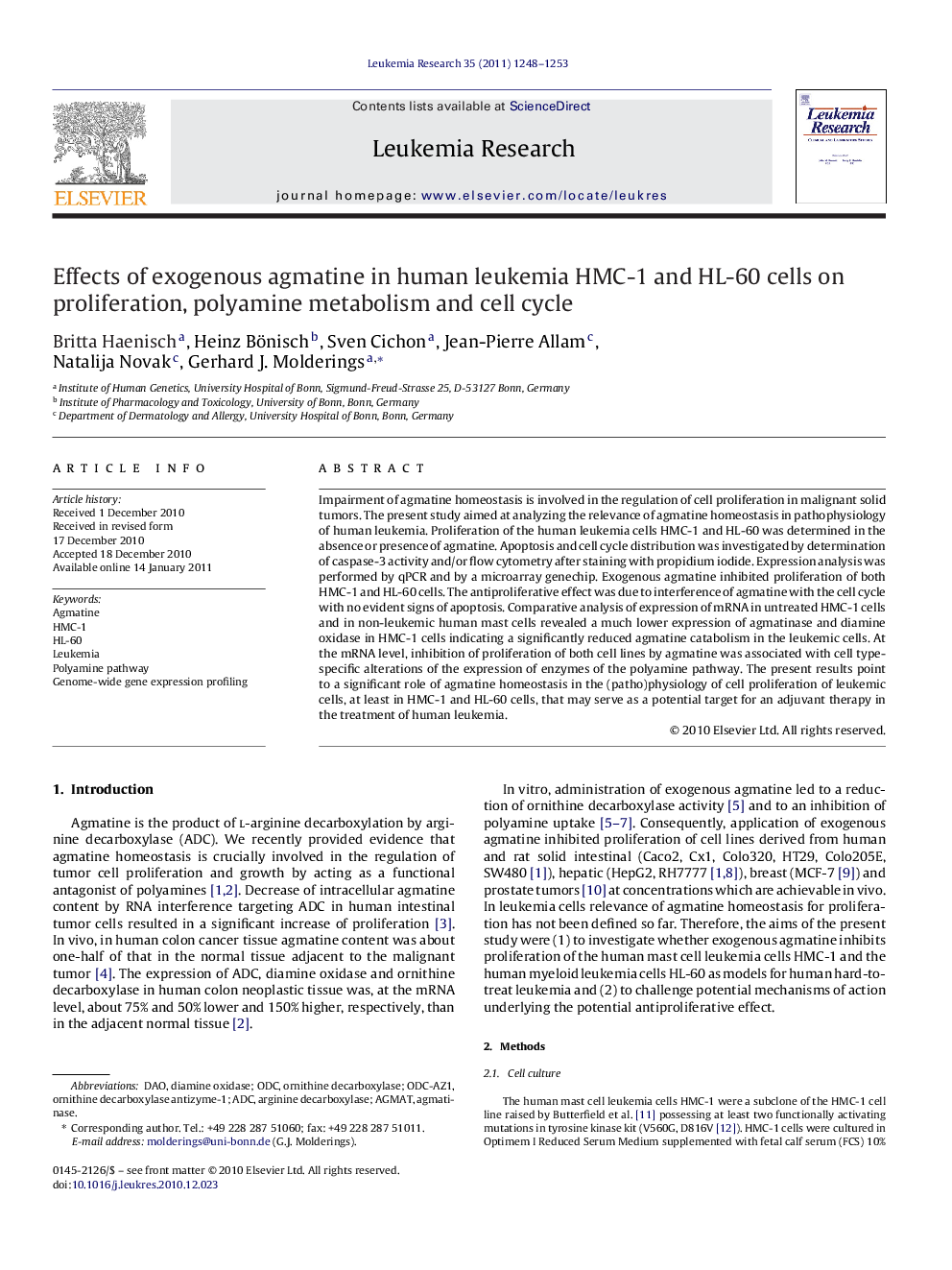| Article ID | Journal | Published Year | Pages | File Type |
|---|---|---|---|---|
| 2137291 | Leukemia Research | 2011 | 6 Pages |
Impairment of agmatine homeostasis is involved in the regulation of cell proliferation in malignant solid tumors. The present study aimed at analyzing the relevance of agmatine homeostasis in pathophysiology of human leukemia. Proliferation of the human leukemia cells HMC-1 and HL-60 was determined in the absence or presence of agmatine. Apoptosis and cell cycle distribution was investigated by determination of caspase-3 activity and/or flow cytometry after staining with propidium iodide. Expression analysis was performed by qPCR and by a microarray genechip. Exogenous agmatine inhibited proliferation of both HMC-1 and HL-60 cells. The antiproliferative effect was due to interference of agmatine with the cell cycle with no evident signs of apoptosis. Comparative analysis of expression of mRNA in untreated HMC-1 cells and in non-leukemic human mast cells revealed a much lower expression of agmatinase and diamine oxidase in HMC-1 cells indicating a significantly reduced agmatine catabolism in the leukemic cells. At the mRNA level, inhibition of proliferation of both cell lines by agmatine was associated with cell type-specific alterations of the expression of enzymes of the polyamine pathway. The present results point to a significant role of agmatine homeostasis in the (patho)physiology of cell proliferation of leukemic cells, at least in HMC-1 and HL-60 cells, that may serve as a potential target for an adjuvant therapy in the treatment of human leukemia.
